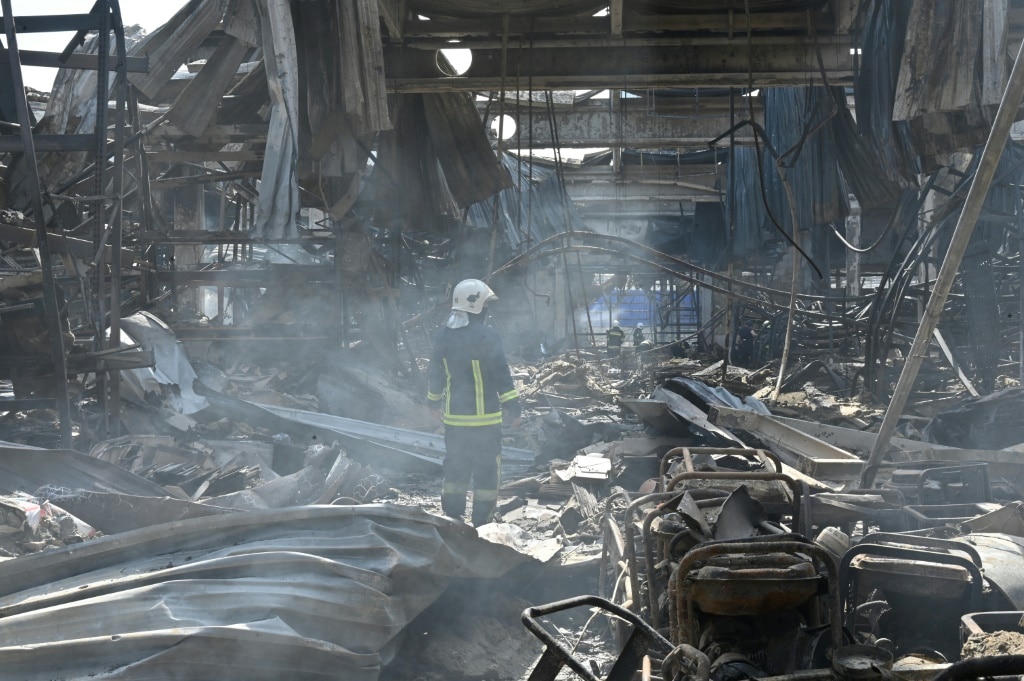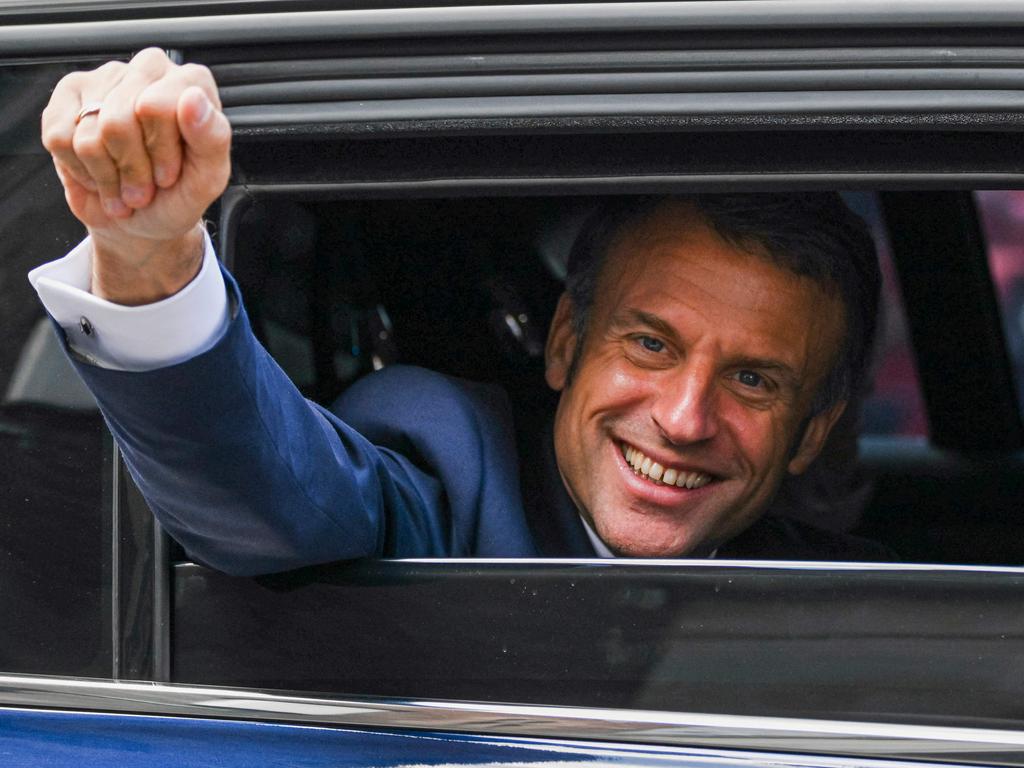Will Putin go nuclear if Western weapons hit Russia targets?
NATO, the US, Britain and France are in favour of Ukraine using their weapons for cross-border attacks, but Kremlin is almost certain to strike back in some way.

Britain, France and the United States have all supplied Kyiv with powerful long-range missiles to strike President Putin’s invading forces since Russia launched its assault on Ukraine in 2022.
The western missiles have been deployed with devastating effect against the Kremlin’s army in occupied areas, including Crimea, but Kyiv has had to use its own rockets and drones to hit targets inside Russia itself. That may be about to change.
As Putin’s forces pound Kharkiv, Ukraine’s second-largest city, from across the border, Britain and France have given Kyiv the green light to use their weapons to hit military targets in Russia. Britain has provided Ukraine with advanced Storm Shadow cruise missiles, while France has supplied its own version of the missiles, called Scalp. Jens Stoltenberg, the head of NATO, is also in favour of using western weapons to take the war to Russia.
The United States had refused to drop its ban on the use of its weapons in cross-border strikes over fears that attacks on Russian soil could trigger an escalation in the conflict. However, in a major policy shift, President Biden on Thursday gave Ukraine permission to launch American missiles at Putin’s military inside Russia but near the besieged Kharkiv region, the officials said.
If, as now seems likely, western missiles begin striking Russian forces outside Ukraine’s borders, it is unclear how the Kremlin will respond. Putin has portrayed the conflict against western-backed Ukraine as an existential battle for Russia’s very survival and it is hard to imagine that Moscow would not seek to retaliate, in some way. But what are Putin’s options?

Going nuclear
Russia has threatened on numerous occasions to use nuclear weapons over the West’s support for Ukraine. Yet the potency of the threats has faded with repetition and both Ukrainian and western officials have sought to convince the world that Putin is bluffing.
Russia’s rhetoric has also been indirectly condemned by China, a vital ally, which has said that nuclear threats are unacceptable. President Xi warned Putin in private against carrying out nuclear strikes when they met in Moscow last year, the Financial Times reported. The Kremlin denied this.
Russia has recently begun tactical nuclear weapons drills near Ukraine, a move that most analysts view as an act of intimidation rather than a sign that Moscow was gearing up for a strike. NATO says it has not seen any signs that Russia is preparing to launch missiles.
Officials in Moscow have floated the idea of a nuclear test as a way of forcing the West to drop its support for Ukraine. Dmitry Suslov, a senior member of Moscow’s council on foreign and defence policy, which advises the Kremlin, wrote this week that Russia could carry out “demonstrative” nuclear explosion to convince the West of the dangers of allowing Ukraine a free hand on the use of its weapons. Moscow carried out its last nuclear test in 1990, while Washington’s was in 1992.

Although analysts say that it is unlikely that Russia would resort to a nuclear strike, no one is ruling out the possibility entirely. One factor that could make any analysis irrelevant is Putin’s state of mind. His invasion of Ukraine has already plunged Europe into its biggest war for almost 80 years – a move that shocked even his closest advisers – and there is concern that his circle has shrunk to a small group of hardliners. Yet Putin would not be solely responsible for pushing the red button.
“Putin isn’t the only person making decisions in that [nuclear] chain – there are a lot of people between him and those who would actually launch the missiles,” said Keir Giles, a Russia analyst at Chatham House, the British think tank. “You’d have to assume that everybody up and down that chain is as irrational or misinformed as Putin, which seems unlikely.”
Sabotage from the shadows
Besides the nuclear option, the Kremlin could also order an increase in attacks on targets in the West in a bid to cripple infrastructure and raise the costs for western governments of supporting Ukraine. Russian agents are already suspected of a series of incidents in Britain, Estonia, Germany, Poland and Lithuania.
In the most serious case, two German-Russian nationals were arrested in Germany last month on suspicion of plotting bomb and arson attacks on American military facilities. Poland also arrested nine people that it accused of “beatings, arson and attempted arson” on behalf of Russia’s intelligence services. In April, a British man was accused of an arson attack on properties linked to a Ukrainian businessman in east London. He is believed to have been recruited by Moscow.

Western officials are concerned that the attacks represent a campaign to undermine public support for Kyiv. Kaja Kallas, the Estonian prime minister, said last week that Russia was carrying out a “shadow war” against western countries, while Norway warned that sabotage by the Kremlin’s agents was a “real and serious” threat.
The Kremlin could also order its army of hackers into action. The NHS is especially vulnerable to Russian cyberattacks, according to a report last year by the Henry Jackson Society think tank. “One of the easiest targets is the UK hospital system,” said David Kirichenko, the author of the report. “The medical equipment is very outdated, it was never built with any security concerns in mind.”
Baltic moves
Moscow could undertake some kind of military operation in the Baltic region to test NATO’s commitment to Article 5, the alliance’s collective defence pledge. Gabrielius Landsbergis, the Lithuanian foreign minister, said this month that his government had concerns that Russia could force neighbouring Belarus to “escalate” tensions in the region.
In March, Alexander Lukashenko, the Belarusian dictator, asked a military commander if his troops could seize and hold the strategically important area known as the Suwalki Gap. The 60-mile stretch of land, which runs through Poland and Lithuania, separates Russia’s exclave of Kaliningrad from Belarus. By controlling the territory, Russia would be able to deprive the NATO member states of Estonia, Latvia and Lithuania of land links with their allies in Europe.
There are already indications that Russia may be plotting something in the region. Moscow said recently that it would unilaterally redraw borders in the Baltic Sea, before quickly backtracking. Sweden has also warned that Russia could try and seize the strategically important island of Gotland.
Mobilisation
Any large-scale attacks by Kyiv with western weapons inside Russia would probably shore up support for Putin and could allow him to boost troop numbers in Ukraine. Hundreds of thousands of men of fighting age fled Russia after Putin unexpectedly announced nationwide mobilisation in 2022 and the Kremlin has been reluctant to repeat the experience.
Russian propaganda has sought to compare the war in Ukraine with the battle against Nazi Germany, but its efforts have not always been successful. However images of western missiles striking the Russian heartland could allow Putin to argue more convincingly that the Motherland is in mortal danger, an appeal that would likely cause Russians to rally around the flag in greater numbers.
The Times







To join the conversation, please log in. Don't have an account? Register
Join the conversation, you are commenting as Logout